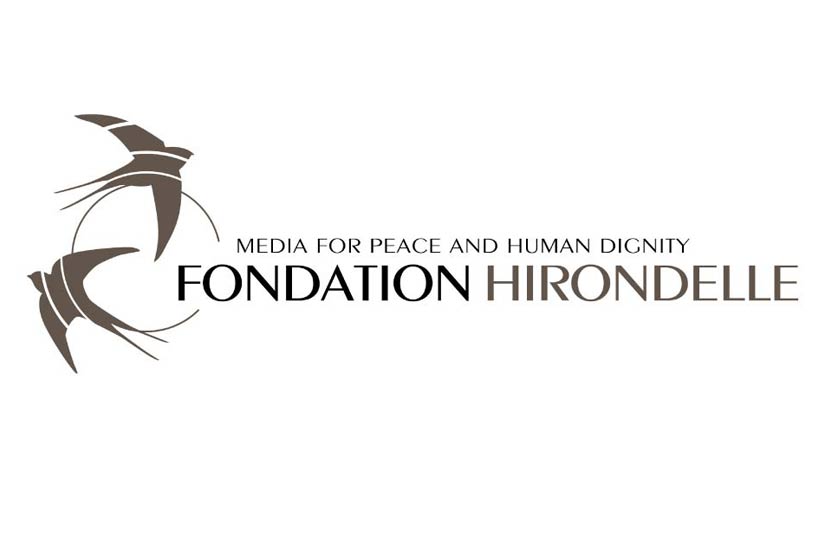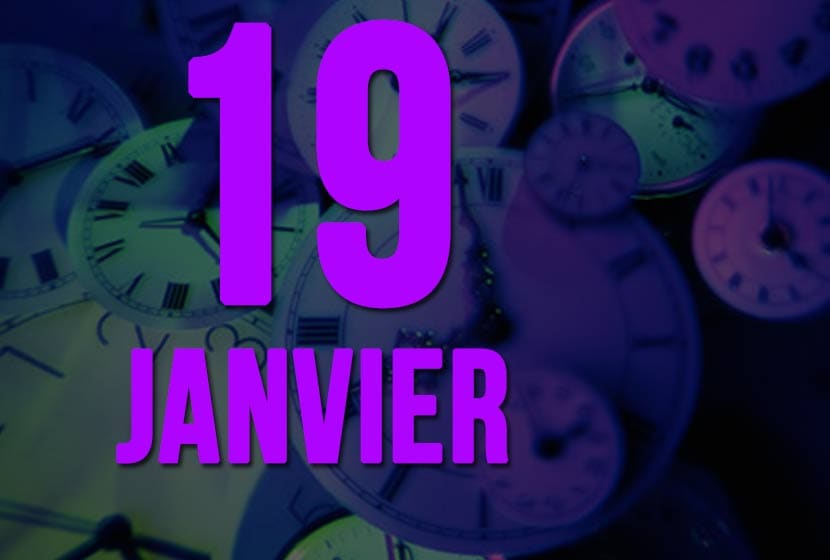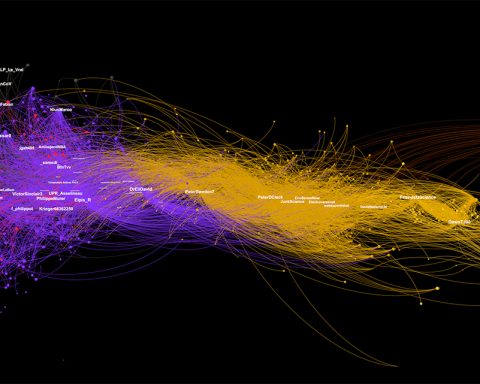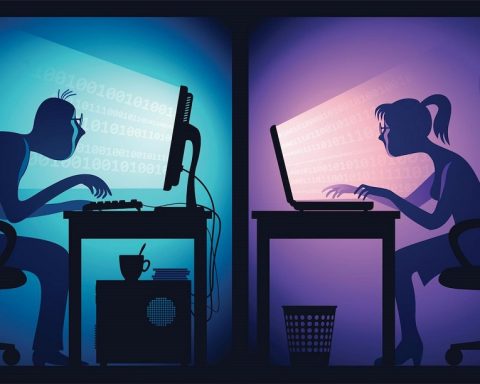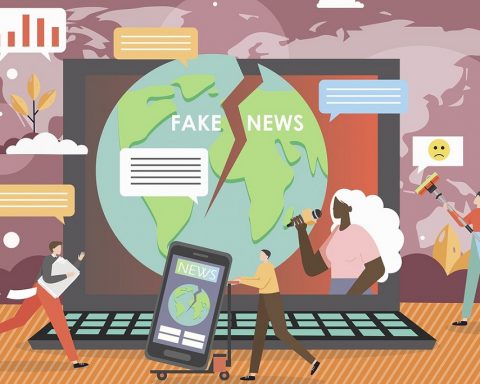On the Internet, Anonymous declares war on Islamists, codenamed #.OpCharlieHebdo. The group declares that it "will never allow law to be flouted by obscurantism and mysticism". In a press release published on Pastebin (1)He threatens: "Freedom of expression and opinion is a non-negotiable thing, and to attack it is to attack democracy. Expect a massive and frontal reaction from us, because the fight for the defence of these freedoms is the very basis of our movement".
In two days, more than 22,000 subscribers on their twitter account.
Concomitant with the assassinations at Charlie Hebdo and the hostage-taking in Saint-Mandé, Islamist hackers launched an operation to hack sites in the hexagon. Hundreds of sites were emptied of their content and replaced by the same propaganda message. "The Islamic State Stay Inchallah, Free Palestine, Death to France, Death to Charlie Hebdo."The message is a pro-Daesh Islamist message for free Palestine and rejoicing at the death of France and Charlie Hebdo.
As early as Thursday, Anonymous released a report Op Charlie Weekly on Twitter targeting web pages held by terrorist organizations and broadcast two videos addressed to "Al-Qaeda, the Islamic State and other terrorists" on Youtube from an account located in Belgium : "We, Anonymous worldwide have decided to declare war on you terrorists... We will monitor all your online activities, we will shut down your accounts on all social networks... You will not impose Sharia law in our democracies..."
Another video demanding from President François Hollande an obligation of result for the security of his country. Anonymous yesterday unveiled a first list of Twitter accounts of jihadists on the site pastebin.
https://www.youtube.com/watch?v=k1sCVOG9BF8
https://www.youtube.com/watch?v=5FuQfqtfwBY
Extraordinary international mobilization
According to the newspaper The World January 10th, " Hundreds of Anonymous supporters come here to discuss more radical actions against "terrorists". They all have their own preferences: blocking websites, hijacking pages, hacking servers and databases, attacking social network accounts...
In the mess, ephemeral working groups are formed and the addresses of the first targeted sites begin to circulate. Graphic designers propose to create humorous or provocative pages to be posted on Islamist sites once they have been hacked. A site for internal use belonging to the German Pirate Party displays provisional lists of hundreds of Facebook and Twitter accounts suspected of belonging to radical Islamists that have not yet been published on Pastebin.
A divisive initiative
"Cyberwar is coming! » announced John Arquilla and David Ronfeldt, analysts at Rand Corporation, in a seminal 1993 article. In their view, the Internet, still in its infancy at the time, would profoundly change the practice of warfare. In February 2011, Leon Panetta, then director of the CIA, told Congress that "the next Pearl Harbor could very well be a cyber attack. »
According to Thomas Rid (2)A reader in the War Studies Department at King's College London, digital violence has implications for ethics and national security strategies. Malicious code or, more generally, computer attacks can achieve objectives that once required the intervention of force. The most complex attacks are extremely precise, and computer-based weapons generally cause less collateral damage than conventional weapons. Thus, in many cases, the use of computers would be ethically preferable: a cyber attack is less violent, less traumatic and more restrained.
Nevertheless, some voices are being raised against such methods. According to the 01Net magazine : « Por Olivier Laurelli, alias Bluetouff, this is a very bad idea that could have disastrous consequences on the work of investigators. This IT security specialist told AFP that "from the moment you attack these networks where they communicate with each other, you interfere with the work of investigators". He added that "it is not by launching denial of service attacks that we are going to solve anything".
For their part, the police ask them not to "disrupt [their] work by spreading false information or rumours". Especially as the government is preparing to act by blocking terrorist sites.
According to journalist Olivier Chicheportiche of ZDNet.fr, when we defend freedom of expression, in theory, we defend it for everyone: "Under laudable airs, Anonymous is not afraid of contradiction, since it is about preventing some people from expressing themselves to defend freedom of expression. It's a curious approach, because when you defend freedom of speech, in theory, you defend it for everyone. This kind of hot revenge risks throwing oil on the fire, deepening the fault lines... And be useless, because the people behind these sites are perfectly capable of tracing the infrastructure, which is even more discreet and therefore even more difficult to locate. »
Cyberwar, the Fourth Army?
The Internet has made our lives easier. But it also has its downsides. And cyber warfare with computers and keyboards as weapons is now an integral part of warfare with two objectives: to cripple sites and leave a signature to expose vulnerability and damage infrastructures. Good cyber-soldiers will be able to do far more damage than any army. Meir Sheetrit, former Israeli Minister of Internal Security, said in April 2014 to the newspaper Libération that in 2011, Saudi hackers downloaded the credit card data of 400,000 Israelis. In retaliation, Israeli hackers infiltrated the credit card records of the Saudis. In 2011, hackers broke into water management systems in Illinois and Texas. These hackers wanted to show the United States that they were not protected. David Dittrich, a researcher at the University of Washington, said it took 10 years of high-level network programming experience to have the capabilities to defend and attack in a cyber war. So it takes a huge investment of money and time to train cyber-soldiers. It is not an amateur job, but a professional job.
As Jean-Yves Le Drian, Minister of Defence, stated last October on RTL...the fourth army has arrived: cyber defense. With 1,250 men and women, it is in charge of countering computer attacks of all kinds.
"Today, if you don't master computer systems, you can't do anything. "said Admiral Arnaud Coustillière, general officer in cyber defence.
The digital revolution has shaken international relations. And it is no longer just states that are confronting each other in a virtual universe by developing programmes and weapons of a new kind, it is social actors who are involved in our democratic societies, but also dictators, mafias, the Taliban, jihadists - all sorts of organizations that feed, inform or distort the web according to their interests.
Should cyberwarfare be declared in the name of the common good? Does it open the era of new forms of conflict? "War is too serious a thing to be entrusted to the military" said Clemenceau. Should we leave it in the hands of Anonymous type initiatives today? Many people want to see cyberwarfare as a new wild west beyond rules; that is, cyberspace would be a veritable lawless zone where states could attack each other without restrictions and without the existing rules for conventional armed conflict being applicable to them. Is this really the case? Is cyberwarfare really outside the scope of international law? Measures passed by the anti-terrorism law and the digital society law have been notified by Brussels, as required by European legislation, and will be published in the Official Journal in the coming days.
(1) See Anonymous Release January 7 on Pastebin
(2) Author of "Cyber War Will Not Take Place" (Oxford University Press 2013)


